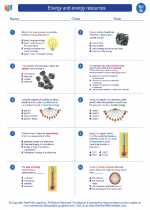Tissues
In biology, tissues are groups of similar cells that work together to perform a specific function. There are four main types of tissues in the human body:
Epithelial Tissue
Epithelial tissue covers the surfaces of the body, lines organs, and forms glands. It protects against abrasion, dehydration, and destruction by chemical or biological agents.
Connective Tissue
Connective tissue supports, connects, or separates different types of tissues and organs in the body. It includes bone, cartilage, tendons, ligaments, and blood.
Muscle Tissue
Muscle tissue is composed of cells that have the special ability to contract, producing movement in the body. There are three types of muscle tissue: skeletal, cardiac, and smooth.
Nervous Tissue
Nervous tissue is the main component of the nervous system. It contains two types of cells: neurons and glial cells. Neurons transmit electrical signals, while glial cells provide support and protection to neurons.
Study Guide
Here are some key points to remember about tissues:
- Tissues are groups of similar cells that work together to perform a specific function.
- There are four main types of tissues in the human body: epithelial, connective, muscle, and nervous tissue.
- Epithelial tissue covers the surfaces of the body, lines organs, and forms glands.
- Connective tissue supports and connects different types of tissues and organs in the body.
- Muscle tissue is responsible for producing movement in the body.
- Nervous tissue is the main component of the nervous system and transmits electrical signals.






